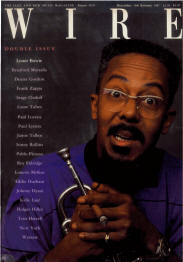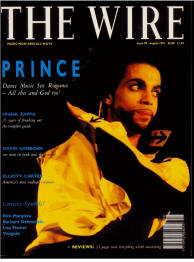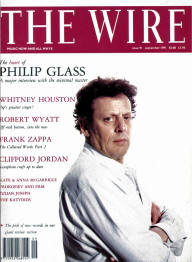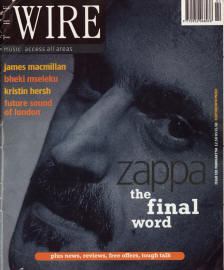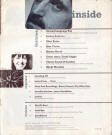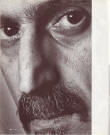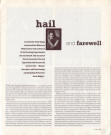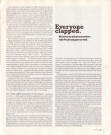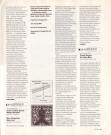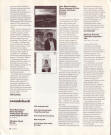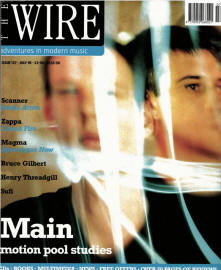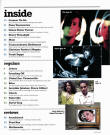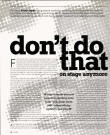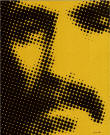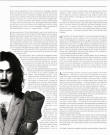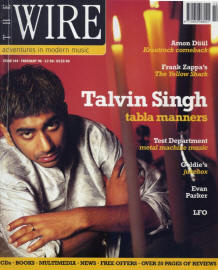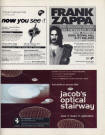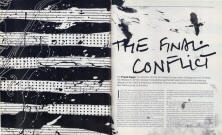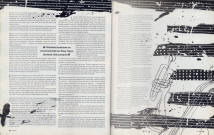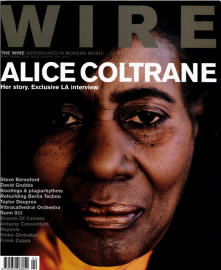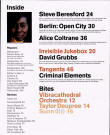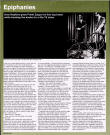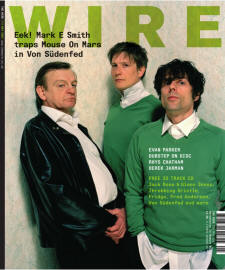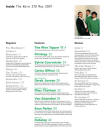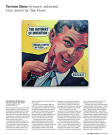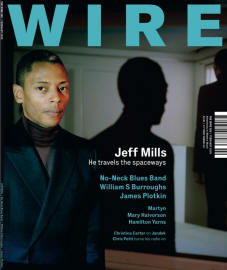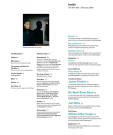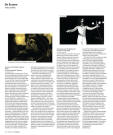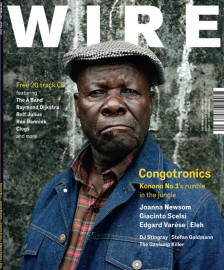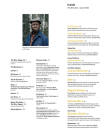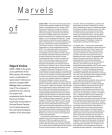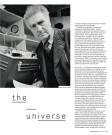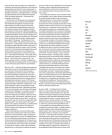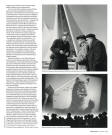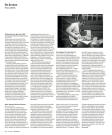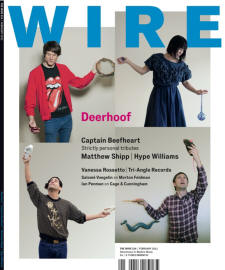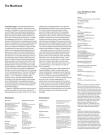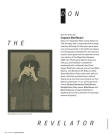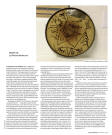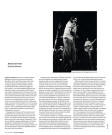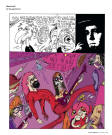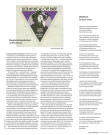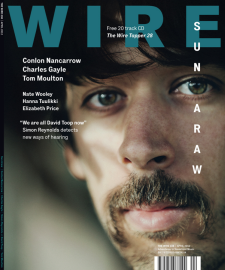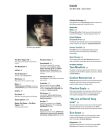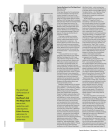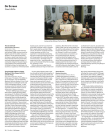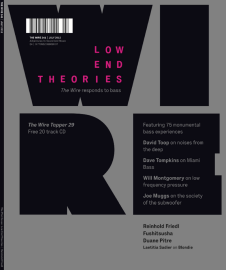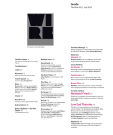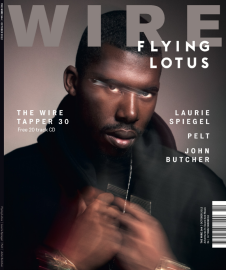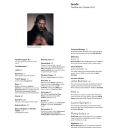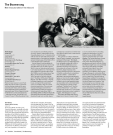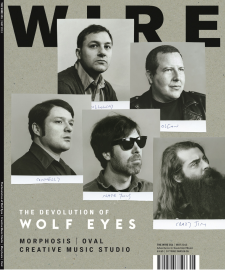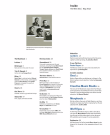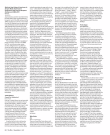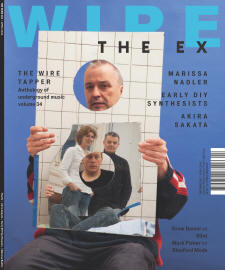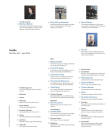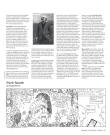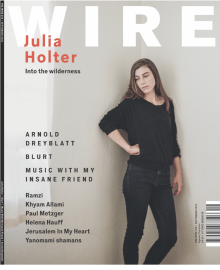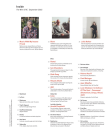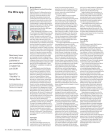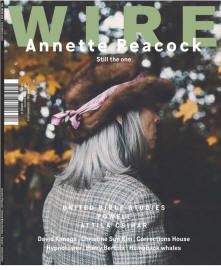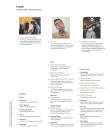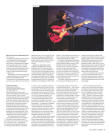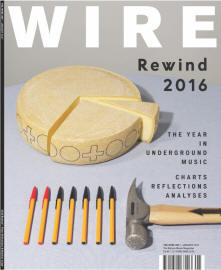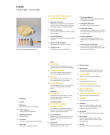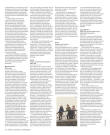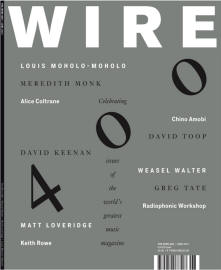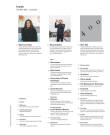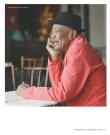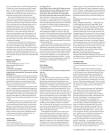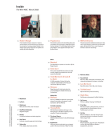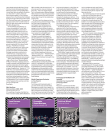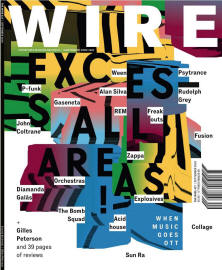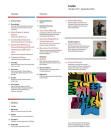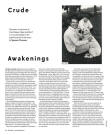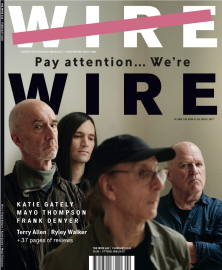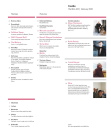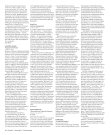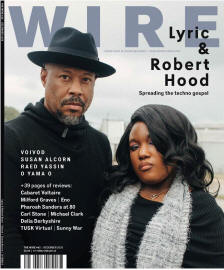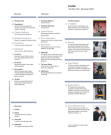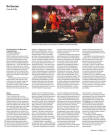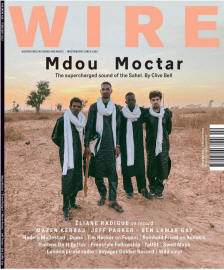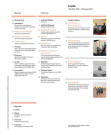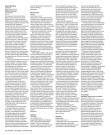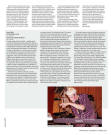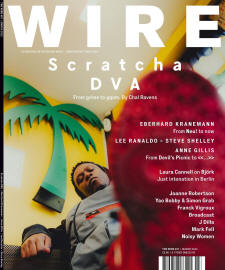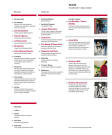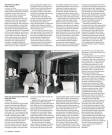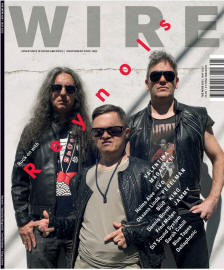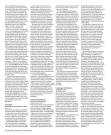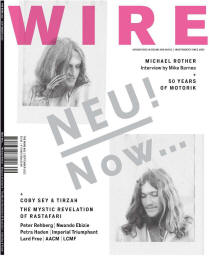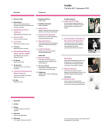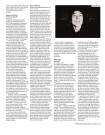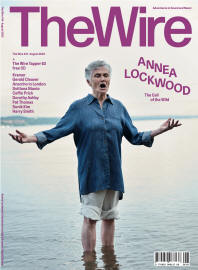The Wire
Founded by Anthony Wood around 1983 as a jazz magazine, by 1992 The Wire had entered the adventurous and messy crossroads of avant-garde and pop. (...) It's giddy tone peaked in the mid-90s. (...) But then it got boring, focusing more rigidly on experimental music. (fastnbulbous)
1986 December, 1987 January
No. 34-35
The All American Composer
By Steve Lyons and Batya Friedman, pp 48-51, 53, 78
This interview is published in various forms in
- The Progressive (November
1986),
- Wire Magazine (Dec
1986/Jan 1987 issue),
- Option Magazine
(Jan/Feb and
Mar/Apr 1987).
1994 February
No. 120
Hail And Farewell
By Ben Watson, pp 26-27, 29-30
Frank Zappa: The Yellow Shark (review)
By Chris Blackford, pp 53-54
Last October Frank Zappa summoned Ben Watson to Hollywood to read sections of his forthcoming Zappa book to the man himself. This was one of the last encounters the rock legend had with the press he loved to hate – Watson describes a visit both moving and intriguing.
The Frank Zappa family mansion is in a desirable residential spot, the craggy terrain creating twists and turns in the roads, a welcome break from the endless grid of the rest of LA. It's also high up, affording a view of San Fernando Valley and catching a breeze that is denied those who swelter below. Negotiating the curves of Laurel Canyon Boulevard in a car is like driving in Greece; the road is in a similar state of disrepair. There's only the endless traffic and polluted air to remind you that you are not in the Mediterranean. (read more)
For Frank Zappa, the interface of rock and classical music was a battleground: for 20 years, his attempts to get his classical compositions performed were thwarted by the sneering attitudes of the world's symphony orchestras. Then he met Germany's Ensemble Modem. Ben Watson picks up the story.
In April 1991, Dieter Rexroth, the director of the Frankfurt Festival, and Andreas Mölich-Zebhauser, head of Frankfurt's deluxe contemporary orchestra The Ensemble Modern, flew to Los Angeles. Their mission was to persuade Frank Zappa, notorious freak, heavy rock guitarist and scatological satirist, the man who sang the praises of Black Sabbath and The UK Subs, and produced an album by Grand Funk Railroad, to contribute scores for an evening of concert music. (read more)
Source: Charles Ulrich
2009 February
No. 300
Frank Zappa And The Mothers
Of Invention: In The 1960s (DVD review)
By Edwin Pouncey, p 74
Beside the DVD review this issue contains a 4-page article on Edgard Varèse (with no Zappa references).
Frank Zappa: The Freak-Out List
Chrome Dreams/Sexy Intellectual DVD
On the cover of the debut Mothers Of Invention album Freak Out! (1966), there's a list of 179 names crediting individuals who, in Frank Zappa's words, had "contributed materially in many ways to make our music what it is". That varied list is the declared point of departure for this documentary, which gravitates nonetheless to a well-established Zappa canon – Varèse. Stravinsky, Schoenberg, doo-wop, Eric Dolphy, Johnny 'Guitar' Watson and "Louie Louie" originator Richard Berry.
Members of later incarnations of The Mothers – Don Preston, Ian Underwood and George Duke – testify to Zappa's wide-ranging musical taste and readiness to feed disparate influences into his music without aiming for a homogeneous product. They make some more enlightening disclosures. Keyboard player Preston reveals that he introduced classical quotations in the course of performances in order to make Zappa laugh, a goal – he explains – that was very much part of the job.
Other talking heads place Zappa within specialised perspectives.
Academic historian David Nicholls sketches a map of common ground
with the practices of early 20th century composers. A pair of
doo-wop authorities confirm that Zappa grew up listening to
that cheesy vocal music and loving it. Jazz buff Stuart Nicholson
confronts the uncomfortable task of making comparison with Miles
Davis's fusion phase. Davis doesn't actually feature
in the Freak Out! list. Meanwhile, in the way of rock
documentaries, tantalising snippets of
vintage footage end abruptly, just as you're getting involved.
It's left to biographer Ben Watson to speak from within an experience of Zappa's music rather than talking around it. Watson suggests that it was in keeping with Zappa's "delinquent principles" to make explicit reference to his musical sources. He also suggests that merely spotting influences misses the point – which is first of all to listen and enjoy, and then to ask what effect this strangely composite music is having on you. It's not just an incidental aspect of this disappointingly narrow and conventional documentary that contributors' statements regularly contradict one another. Even the former Mothers don't speak with one voice. Now there's a point of departure for a documentary that might really get to grips with the Freak Out! list.
2011 February
No. 324
Don The Revelator
By Richard Henderson, Brian Morton, Savage Pencil, Gary Lucas,
Mike Barnes and Byron Coley, pp 30-35
2012 April
No. 338
Captain Beefheart And The Magic
Band Bat Chain Puller
By Edwin Pouncey, p 63
From Straight To Bizarre: Zappa, Beefheart, Alice
Cooper And LA's Lunatic Fringe (DVD)
By Edwin Pouncey, p 76
Recorded in 1963 at Paul Buff's studio (aka Studio Z), this early workout between Frank Zappa and vocalist Ray Collins is a completely diferent animal from the one that eventually appeared five years later on The Mothers Of Invention's Cruising With Ruben & The Jets album. The basic doo-wop template is the same on both versions, but this prototype is made remarkable by Zappa's use of a vicious sounding fuzz bass guitar, a (then) technically innovative device that smothered Collins's crooning love song with a greasy coating of garage rock snarf. Zappa later confessed that he detested "love lyrics", cynically describing them as 'a subconscious training that creates a desire for an imaginary situation which will never exist for you."
To create the effect that forces "Fountain Of Love" to its knees, Zappa attached an electric bass into a phono preamp plugged into the studio soundboard to produce a dislocated sonic vibration that sounded as though the instrument's cable thick strings were sagging on the floor while being loosely strummed. Despite Zappa's aforementioned loathing of love songs, the low riding rubbery boom of his treated bass counterpoints the sentimentality of Collins's teen balladry without tearing it apart. (The Lost Episodes. Rykodisc, 1996)
There are many reasons to avoid Frank Zappa. His cultural politics, expressed in a tone that was snide and hip, were ostensibly anti-liberal, anti-bourgeois, but his apparent lack of empathy with anyone who wasn't Frank Zappa ultimately rendered the as inert and reactionary – see songs such as "He's So Gay" and "Jewish Princess". While the natural thing to do would be to concentrate purely on the music, Zappa's inexhaustible cynicism frequently drowns it out. It's tiresome to be told over and over how dumb everyone and everything else is. Eventually the relentless sarcasm blisters away until all that's left is a charred black lump of bitterness. (read more)
2015 December
No. 382
Zappa Plays Zappa (Royal Festival
Hall, London, UK)
Grandmothers Of Invention (The Haunt, Brighton, UK)
(concert reviews)
By Daniel Spicer, p 79
I've read that this is someone who wanted to work with you.
Who's this?
Frank Zappa.
Oh, yes. That was the Amougies Festival in Belgium [in 1969]. (read more)
2018 March
No. 408
Frank Zappa & The Mothers Of
Invention. Absolutely Free: Expanded 50th
Anniversary Edition (review)
By Edwin Pouncey, p 69
2022 February
No. 456
Frank Zappa. 200 Motels. 50th Anniversary Edition
(review)
By Edwin Pouncey, pp 68-69
2022 March
No. 457
Frank & Co: Conversations
With Frank Zappa 1977-1993. Co de Kloet (review)
By Dave Mandl, p 70
